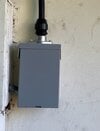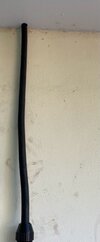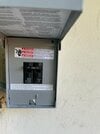Hi there,
I have a nema 14-50 outlet located in my garage but it’s a bit out of reach everytime I need to plug it in. I’m thinking of getting an extension cord to get closer to my garage opening. Is there a good brand and type to get? I saw this brand ‘signalandpower’ for 10or 25 ft but it’s costing $300 for 25ft. Is there another brand or type you guys use and has good quality cord with no heating or dropped voltage during charging?
Also, my nema 14-50 outlet is a plastic type not sure what brand was used when my electrician had installed it back maybe 6yrs ago. Do I need to upgrade it to Bryant or hubbell outlet and change out the box to metal?
I have a nema 14-50 outlet located in my garage but it’s a bit out of reach everytime I need to plug it in. I’m thinking of getting an extension cord to get closer to my garage opening. Is there a good brand and type to get? I saw this brand ‘signalandpower’ for 10or 25 ft but it’s costing $300 for 25ft. Is there another brand or type you guys use and has good quality cord with no heating or dropped voltage during charging?
Also, my nema 14-50 outlet is a plastic type not sure what brand was used when my electrician had installed it back maybe 6yrs ago. Do I need to upgrade it to Bryant or hubbell outlet and change out the box to metal?







